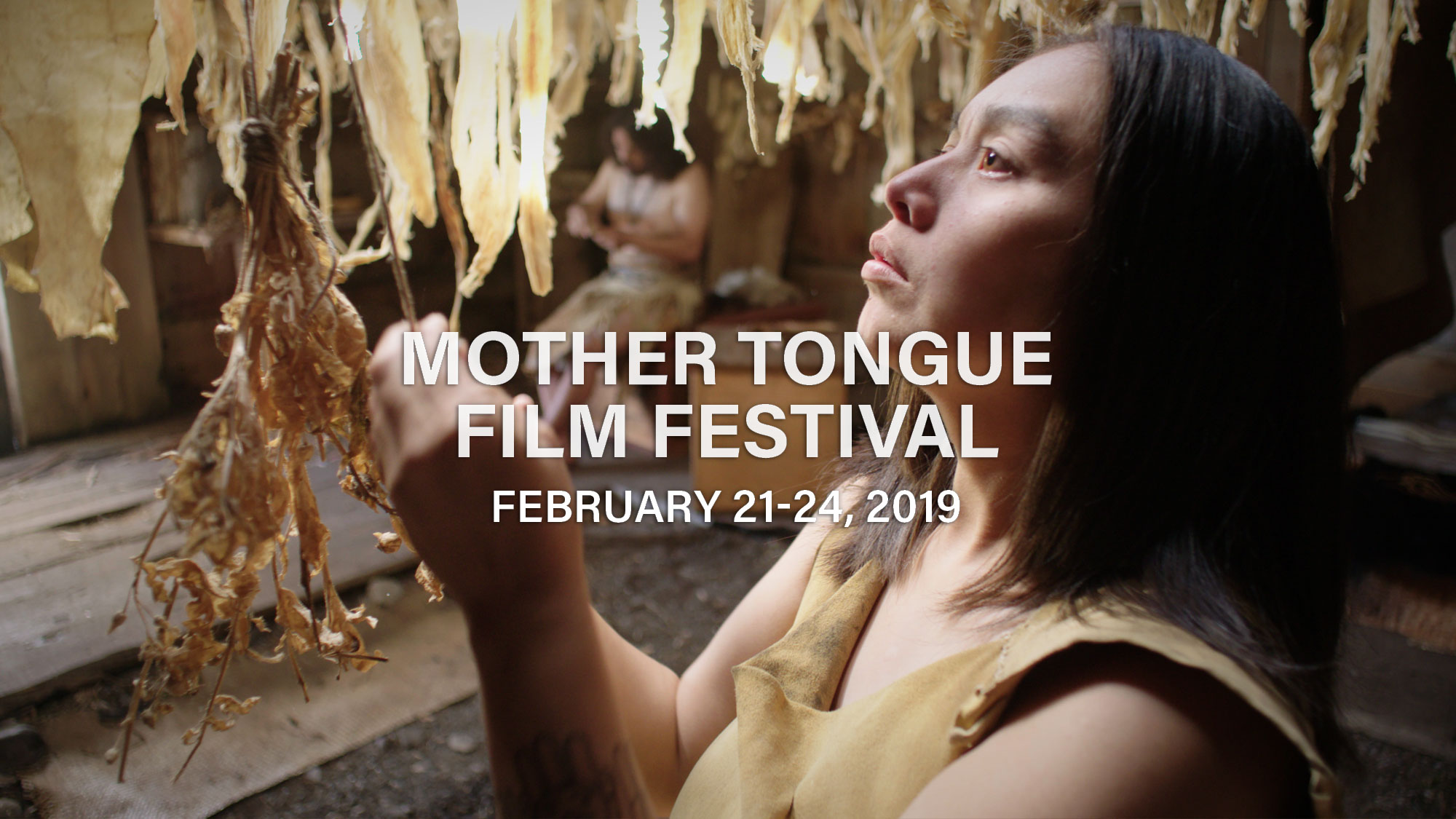
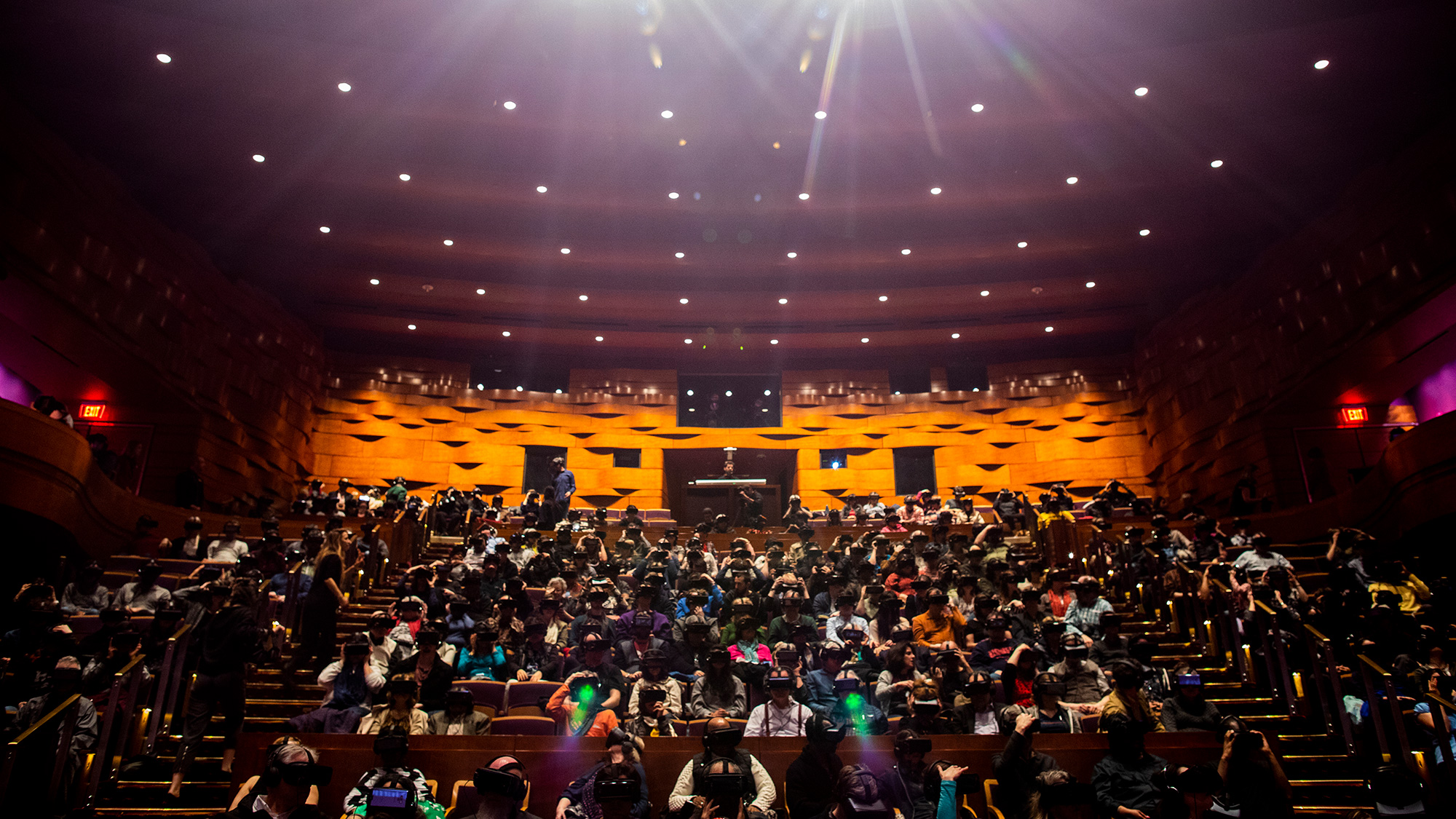
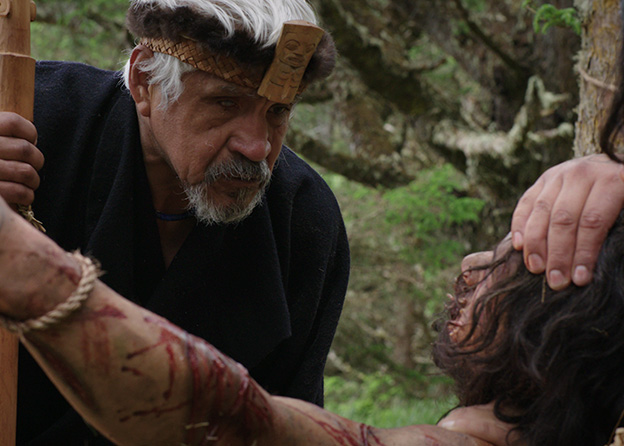
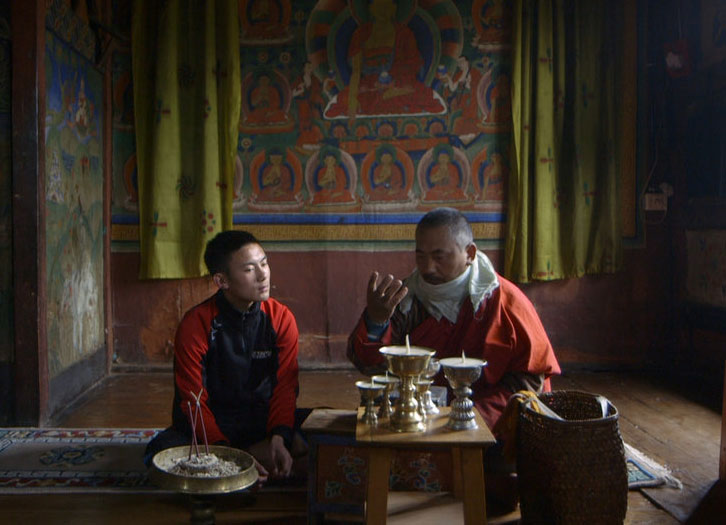
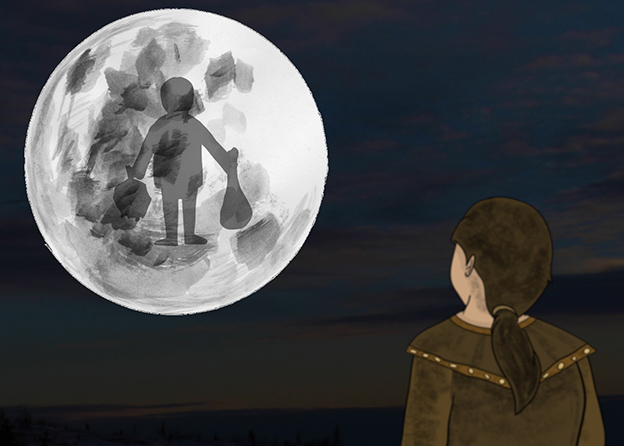
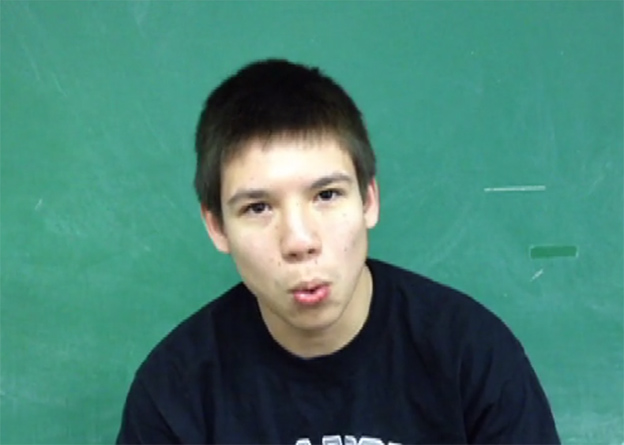
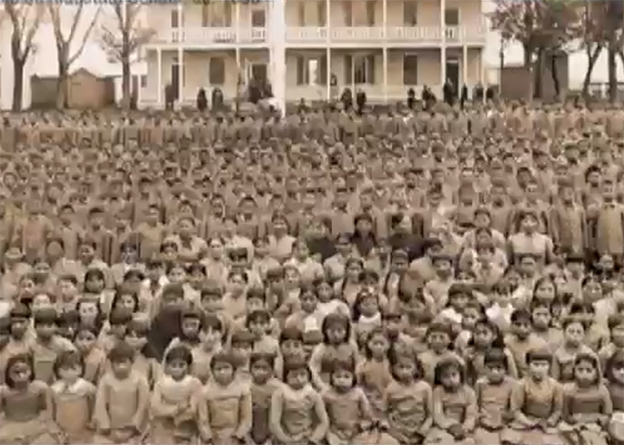
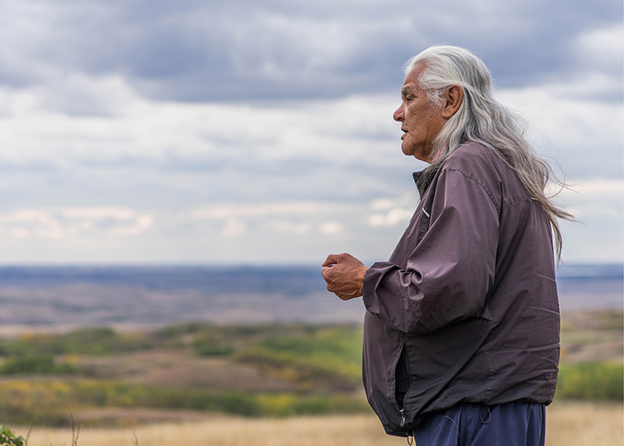
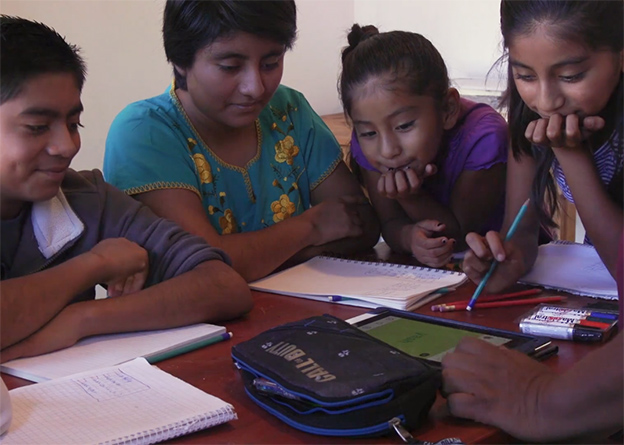
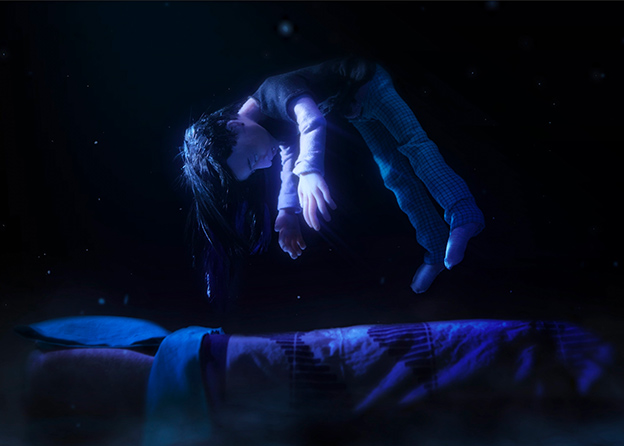
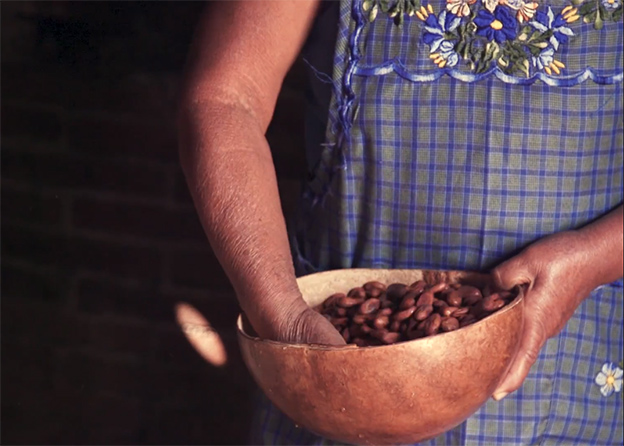
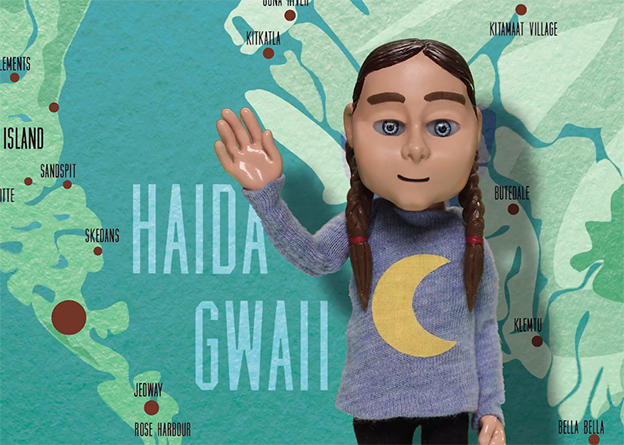
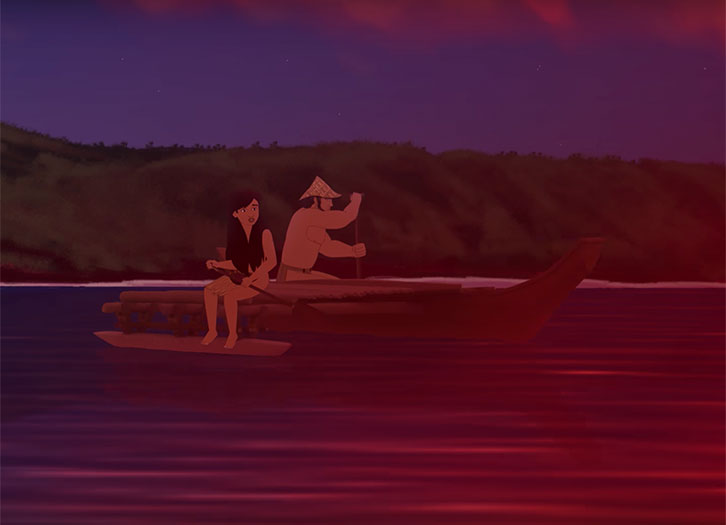
Sunday, February 24 at 6 pm
Terrace Theater, Kennedy Center
Last Whispers is an audiovisual installation and a virtual reality experience—an immersive oratorio—dedicated to the extinction of languages.
The Mother Tongue Film Festival is a collaboration between Smithsonian’s National Museum of Natural History, the National Museum of the American Indian, and the Center for Folklife and Cultural Heritage.
Funding support for the Mother Tongue Film Festival has been provided by the three Recovering Voices partners across the Smithsonian Institution: National Museum of the American Indian, National Museum of Natural History, and the Center for Folklife and Cultural Heritage. Additional support provided by New York University/Stonewall 50, the Embassy of Australia to the United States, the Embassy of Canada to the United States, the Bhutan Foundation, MoMA’s Doc Fortnight, Eaton Workshop DC, the Kennedy Center for the Performing Arts, the Mexican Cultural Institute, and the Georgetown University Department of Anthropology. This program has also received federal support from the Asian Pacific American Initiatives Pool, administered by the Smithsonian Asian Pacific American Center; Latino Initiatives Pool, administered by the Smithsonian Latino Center; Smithsonian Arctic Studies Center; Smithsonian Year of Music; Freer Gallery of Art; and Q?rius, The Coralyn W. Whitney Science Education Center.
Gwaai Edenshaw (Haida)
Helen Haig-Brown (Tsilhqot'in)
Canada
Haida
2018
100 min.
Fiction
Edge of the Knife draws its name from a Haida saying: “the world is as sharp as a knife,” reminding us that as we walk along, we have to be careful not to fall off one side or the other. Set in the nineteenth century against the backdrop of the rain forest and storm-ravaged Pacific coast of Haida Gwaii, the film is an adaptation of one of Haida’s most popular stories, sustained over the years through song and performance.
After tragedy strikes, young Adiits’ii becomes Gaagiixiid/Gaagiid, the Haida Wildman. Stranded, he fights to survive while his humanity gives way to a more bestial state. Meanwhile, the community struggles with conflicting emotions upon returning to the site where Adiits’ii was last seen. Both a timeless story and a contemporary allegory for the Haida Nation, the film was envisioned as a way to support Haida language, a critically endangered language spoken fluently by fewer than twenty people, and promote Haida culture by bringing an ancient story into a new space through film.
Alastair Cole
United Kingdom, New Zealand, Zambia
Soli, Nyanja, Bemba, English
2016
60 min.
Documentary
Must the future be in English? Steward, Elizabeth, and M’barak are first-time students in rural Zambia struggling to make sense of an educational system in a language not their own. This documentary offers an intimate, moving, and often humorous view into a global phenomenon, from the unique perspective of the children involved.
Hinaleimoana Wong-Kalu
Dean Hamer
Joe Wilson
Tonga
English, Tongan
2017
72 min.
Documentary
The island kingdom of Tonga is home to a vibrant and creative community of native transgender women known locally as leitis, who hold essential roles in Tongan society. Tonga is the only South Pacific island to never have been colonized, but a rise in American-financed evangelicals threatens to resurrect colonial-era laws that would criminalize the leitis’ lives. Over the course of an eventful year, Leitis in Waiting follows Joey, a devout Catholic of noble descent, as she organizes an exuberant beauty pageant, mentors a young contestant rejected by her family, and garners the support of a royal princess. With unexpected humor and extraordinary access to the kingdom’s royal and religious leaders, this emotional journey reveals what it means to be different in a society ruled by tradition, and what it takes to be accepted without forsaking who you are.
This screening is free, but please register online in advance.
Dorottya Zurbó
Arun Bhattarai
Hungary/Bhutan
Dzongkha
2017
74 min.
Documentary
In a remote village in the Himalayan Kingdom of Bhutan, sixteen-year-old Gyembo and his sister Tashi, age fifteen, aimlessly roam while their father meticulously polishes the ancient relics inside the altar of their private monastery. This family has been taking care of the monastery from one generation to the next for thousands of years. Unlike their father, whose life revolves around the monastery, Gyembo and Tashi have other desires. Gyembo wants to become a soccer player, and he is the only confidante for Tashi, who identifies herself as transgender. Following tradition, their father wants Gyembo to carry on the family heritage. He believes that the only way for Gyembo to accumulate good karma is to leave school and dedicate his life to religion and become the next guardian.
This screening is free ticketed events. Reserve your tickets online.
Itandehui Jansen
Mexico
Mixtec, Spanish
2018
90 min.
Fiction
Tiempo de Lluvia (In Times of Rain) tells the story of a family caught between the rural and the urban. Adele migrates from her rural village to Mexico City to find work, leaving her infant son José with her mother, Soledad. After years apart, Soledad receives word that Adele is getting married and wants José to join her in the city. Soledad is fearful of José leaving his way of life. In Times of Rain is an intimate family drama rooted in love of culture, land, and family and the heartbreak of uncertainty in the face of economic migration.
Amanda Kernell
Sápmi (Sweden/Norway)
Swedish, Åarjelsaemien gïele (South Sami)
2016
110 min.
Fiction
During the 1930s in Sweden, Sami children were systematically removed from their parents—a practice common in Scandinavia at the time. Reindeer-herding teen Elle Marja is one of these children, sent to a boarding school where indigenous students are taught Swedish language and customs, and made “acceptable” to white society. During her stay, Elle Marja is torn between assimilation and her burgeoning sense of self.
This even has limited seating. Register for free tickets online.
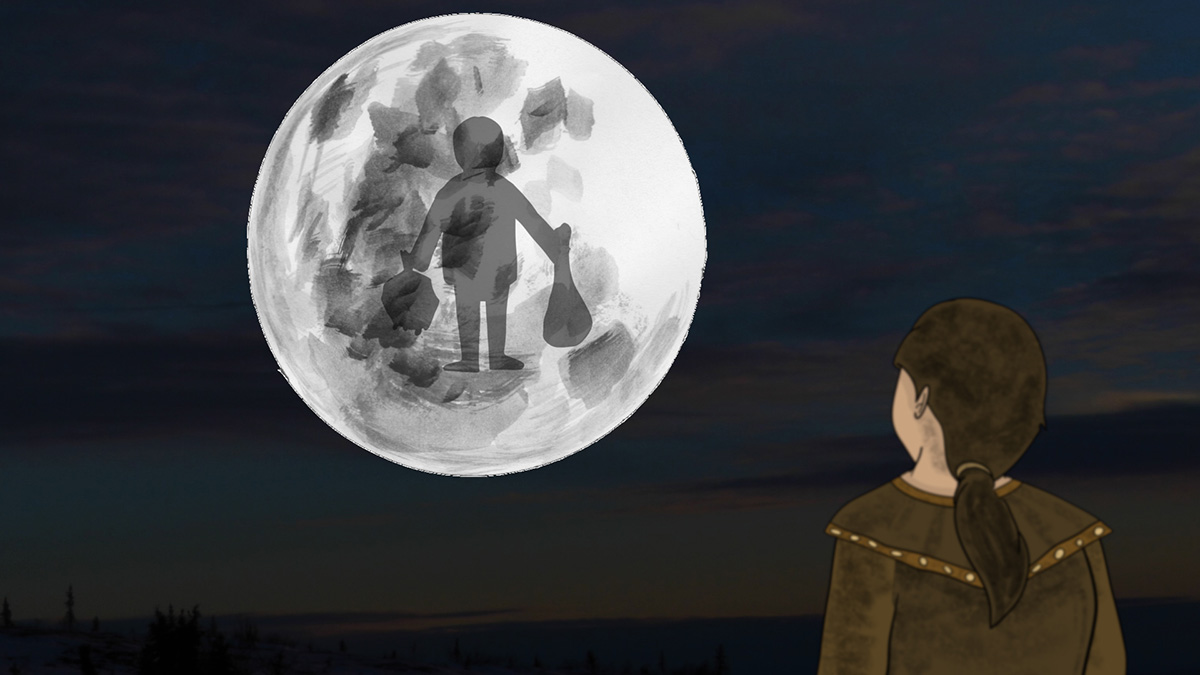
Sam Osborn
Canada
Dinju Zhuh K’yuu (Gwich’in)
2018
6 min.
Animation
In the midst of famine, an Athabaskan community must trust a small child to provide the medicine they need to survive. Originally recorded on wax cylinder by linguist Edward Sapir as told by John Fredson, this traditional story has been faithfully retold as part of the Language Keepers series, a project that strives to harness the power of language to highlight culturally unique stories with revitalization.
United States
Sauk
2016
1 min.
Poetry
Students in Shawnee High School Sauk 1 class present a poem they wrote that expresses the meaning of Sauk in their lives.
United States
Sauk
2016
5 min.
Documentary
What if the only way to take back one’s language is to use the same tactics used in boarding schools to take one’s language away? Students in Shawnee High School Sauk 2 class explore this idea.
Louise BigEagle
Canada
Nakota, English
2017
6 min.
Documentary
As one of the last fluent Nakota speakers, Armand McArthur of Pheasant Rump First Nation, Treaty 4 territory in southern Saskatchewan, has dedicated himself to the revitalization of his language. In this documentary short, Armand shares his knowledge of the Nakota language stating, “When you don’t know your language or your culture, you don’t know who you are.”
Moisés García Guzmán
Brook Lillehaugen
Mexico
Zapotec, Spanish
2018
5 min.
Education
The Dizhsa Nabani documentary web series explores the relationship between Zapotec identity, language, and daily life. In this episode, municipal president Eleazar López Martínez and education officer Adrián Morales Garciá discuss efforts being made to incorporate the Zapotec language into formal education, inspired by projects that address the exclusion of Zapotec language from daily life and public space.
Amie Batalibasi
Australia
Solomon Islands Pijin, English
2015
13 min.
Historical Fiction
Kidnapped from their home in the Solomon Islands, siblings Rosa and Kiko struggle to survive as they are forced to work on a sugarcane plantation in Queensland, Australia, in the late 1800s. In their new surroundings, Rosa works to ensure her younger brother Kiko follows the new rules that govern their lives. The result of community collaboration, this short film is a moving portrait of survival during a time of oppression and culture loss for the Pacific Islanders caught up in the blackbirding trade of the nineteenth century.
Samuel Ishimwe
Rwanda, Switzerland
Kinyarwanda
2017
36 min.
Documentary
Young Gisa travels to the village of Nkora, native to his mother who disappeared during the Rwandan genocide. He finds himself at the center of a family conflict over the fate of the house his mother built. Caught between the contradictions of a changing society, Gisa, who is almost the same age as the new Rwanda, seeks to rediscover his share of the collective memory of a past that belongs to him but is also so far away.
Amanda Strong
Canada
English, Anishinaabe
2018
19 min.
Animation
Carrying out the traditions of their Anishinaabe forbearers, young Biidaaban harvests sap from sugar maples in urban Ontario neighborhoods. Accompanied by Ghost Wolf, Ghost Caribou, and shape-shifter Sabe, Biidaaban works to transcend the barriers placed by non-Anishinaabe settlers in their people’s traditional lands. In doing so, they raises issues about who owns the trees and land.
Jared Flitcroft
Jack O'Donnell
New Zealand
English, ASL
2017
9 min.
Drama
Tama, a young Māori boy who is deaf, wants to perform the ceremonial haka dance despite his brother and father’s admonishment. On a near-fatal car trip to visit his mother’s grave, Tama confronts his father and begins the process of intergenerational healing and cultural reclamation. This film is the result of a collaboration between between deaf and hearing filmmakers.
This screening is free, but please register online in advance.
Euralia Paine
Papua New Guinea
Tok Pisin, Motu
2017
6 min.
Drama
Visiting her relatives in Vabukori Village from Papua New Guinea’s capital city of Port Moresby, Koriva wants to wear her older cousin’s earrings and learn traditional dance. Her parents forbid her to do so, arguing that these traditions have no place in modern urban life. Koriva persists and shows them that one can be modern and value one’s traditions.
This screening is free, but please register online in advance.
Moisés García Guzmán
Brook Lillehaugen
Mexico
Zapotec, Spanish
2018
5 min.
Education
The Dizhsa Nabani documentary web series explores the relationship between Zapotec identity, language, and daily life. Despite having not used her metate to grind chuculat for forty-one years, Angelica Guzmán Martinez can recall every step of this Zapotec process of chocolate-making as if it were yesterday.
Neil Grahn
Canada
Haida, English
2018
5 min.
Animation
Wanting a new toy, Harmony learns how to make a kite from X̲uuya the Raven.
Michael Q. Ceballos
United States (Guam)
Chamorro
2015
35 min.
Animation
With her home threatened by a sea creature from the Mariana Trench, young Maisa must find the courage to lead the women of Guåhan (Guam) into battle and stop the creature from devouring her island home. This first animated film to feature the Chamorro language, this film is the result of collaboration between the filmmakers, students, local actors, and language experts in Guam.
Moisés García Guzmán
Brook Lillehaugen
Mexico
Zapotec, Spanish
2018
4 min.
Education
The Dizhsa Nabani documentary web series explores the relationship between Zapotec identity, language, and daily life. In this short, Angelica Guzmán Martínez saunters through the municipal market in Tlacolula de Matamoros, Oaxaca, showing us what she sells, how she barters, and how it’s related to her identity as a zunni.
Ernesto Calderón Dondero
Chile
Sami
2018
5 min.
Music Video
Finnish duo Vildá is formed by Hildá Länsman (voice, percussion) and Viivi Maria Saarenkylä (accordion). While touring in Chile, they give an improvised live performance of the song “Goaskinviellja,” by Mari Boine Persen, a Sami singer from Norway, on a rooftop of the port of Valparaíso.
This even has limited seating. Register for free tickets online.
Lena Herzog
Sound design and compositions by Marco Capalbo and Mark Mangini
United States
Ahom, Ainu, Ayoreo, Bathari, Central Balsas Nahuatal, Chamacoco (Ishir Ibitoso), Dalabon, Duoxu, Enxlet Norte, Great Andamanese, Ikaan, Ingrian, Ixcatec, Ju|'hoan, Kotiria (Wanano), Koyukon, Laklãnõ Xokleng, Light Warlpiri, Los Capomos Mayo,Mani Manx, Mbya Guarani, N|ng, Nafsan (South Efate), Nivkh, Olekha, Ongota, Paunaka, Pite Saami, Qaqet, Sadu, Selk'nam (Ona), Selkup, Sumtu (Sone Tu), Surel, Tehuelche, Trung (Dulong), Warlpiri, Yanesha, Yauyos Quechua, Yoloxóchitl Mixtec
2016
46 min. (VR: 7 min.)
Video and Sound Installation
In Lena Herzog’s oratorio, image and sound are poetically linked through 3D animation, drone video footage, and still images in black and white. Composed of historical linguistic recordings punctuated by the sound of collapsing stars, Last Whispers is a chorus of extinct and endangered languages, both spoken and sung. Following the oratorio, visitors can experience a short virtual reality projection.
This U.S. premiere is pesented in partnership with the John F. Kennedy Center for the Performing Arts as part of the Millennium Stage program series in the Terrace Theater. Free general admission tickets—up to two per person—will be distributed in the States Gallery beginning at 5 p.m.